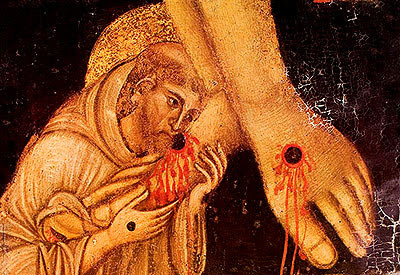A New Ostpolitik
When Cardinal Karol Wojtyla was elected pope in 1978, he began to pull the rug from underneath the Vatican's policy of Ostpolitik. As a priest, bishop and cardinal in communist Poland he knew the policy's shortcomings, its weaknesses, failures and effectiveness; he also knew it had no future if that future was one in which the peoples behind the Iron Curtain were ever to taste freedom again. It may have had its advantages but in the long term it was a failure and led to serious problems for the Church in Poland and even in Rome as communist intelligence agencies penetrated the Vatican. For an excellent summary of this see George Weigel's article in First Things.
The question that is being asked now is: is the Vatican entering into another Ostpolitik with China, a 'Dōngpolitik', you might say? And if so, might we ask a simple question: have they learned nothing from the mistakes of the past, or is the Holy Father convinced that this will lead to the liberation of the Church in China? Cardinal Joseph Zen of Hong Kong is not so sure. When he heard of the Vatican's plans to effect the resignation of faithful Bishops in communion with Rome to replace them with excommunicated prelates of the Chinese Patriotic Association, he immediately travelled to Rome to obtain an audience with the Pope. Cardinal Zen presented the Pope with a letter informing him of the reality of the situation in China - the cardinal was worried that Vatican diplomats had exceeded their remit.
The Vatican's response to this letter was issued by Greg Burke, Director of the Holy See Press Office:
'With reference to widespread news on a presumed difference of thought and action between the Holy Father and his collaborators in the Roman Curia on issues relating to China, I am able to state the following:
"The Pope is in constant contact with his collaborators, in particular in the Secretariat of State, on Chinese issues, and is informed by them faithfully and in detail on the situation of the Catholic Church in China and on the steps in the dialogue in progress between the Holy See and the People’s Republic of China, which he follows with special attention. It is therefore surprising and regrettable that the contrary is affirmed by people in the Church, thus fostering confusion and controversy”'
The statement has been described by some commentators as an indirect slap in the face for Cardinal Zen, but it is a welcome statement in the sense that it clarifies that Pope Francis is clearly aware and approves of all that his representatives are doing with regard to China; he is aware of all that is happening in China and of the state of the Church there and the suffering of faithful Catholics in the Underground Church. It is good for us to know that as we observe how things pan out. Should things go pear-shape there can be no deniability and no embarrassing revelations to follow .
St John Paul threw Ostpolitik under the bus, much to the horror of the Vatican bureaucrats, and started a new conversation, this time with the persecuted people themselves. His patronage of Solidarność (Solidarity Trade Union) was an important step in the eventual liberation of Poland which in turn would lead to the fall of the Berlin Wall and the collapse of the Iron Curtain. John Paul fostered important alliances, particularly with President Ronald Reagan of the US and he maintained a wise suspicion and contempt for the communist regime. He knew communism from within: he knew that ideology hated Christianity because it was the one faith with a system of thought that could completely dismantle atheistic socialism.
China is a country held enslaved ideologically by that system. Though it is as capitalist as the rest of the world, the oppressive shadow of Chairman Mao still hangs over that noble land like a fetid breath. Mao hated the Church; he martyred tens if not hundreds of thousands of Catholics; he sought to control it to destroy it and so was born the Patriotic Association, a puppet hanging on the coattails of the Communist Party. President Xi sees himself as the heir to Mao and seeks to emulate the Chairman's work and bring his vision to fulfilment. That should be a warning to the Church to tread very carefully.
Cardinal Zen, like Pope St John Paul II, knows communism from within. He knows what Xi and his comrades are really like. He is a man whose advice should weigh heavy in the Vatican's consideration of what to do. During the period of Ostpolitik the Church made the mistake of keeping Cardinal Wyszynski from its negotiations with Polish communists lest he get in the way - he was too involved: the providence of God ensured another one that was "too involved" was elected pope to sort out that mess. The Church should not make the same mistake again. Nor should she forget the faithful Catholics who still endure great suffering for the sake of union with Peter. If this deal is signed, they will continue to suffer, but that suffering will be intensified by thinking the Church has betrayed them, that they now become martyrs to expediency and the niceties of diplomacy.
There is no doubt that the Vatican wants to improve the plight of Chinese Catholics; it wants liberty for the Church and the means of proclaiming the Gospel freely for the salvation of souls. But she must be careful and be true to herself and her children and know her enemy. And let us be under no illusion: the Communist Party in China is an enemy.



Comments
Post a Comment